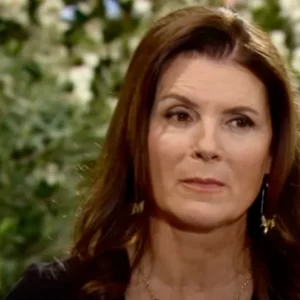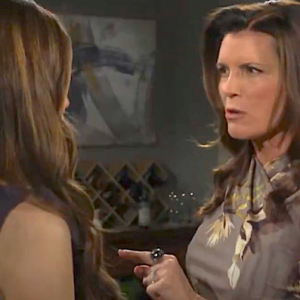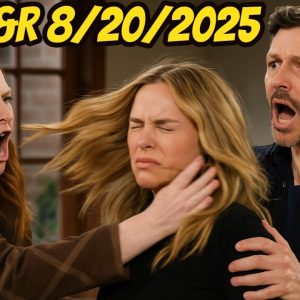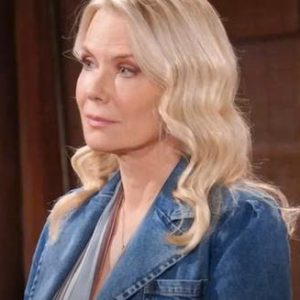In the world of The Bold and the Beautiful, history has a way of repeating itself, especially when it comes to Ridge Forrester, Brooke Logan, and Taylor Hayes. Their love triangle has spanned decades, playing out like a familiar script the audience knows all too well. Yet even with its predictability, the tension remains gripping—because this time, both women have reached their limit.

Brooke, steadfast in her belief that she and Ridge are destined, trusts the cycle. Every breakup, every betrayal, every interloper has eventually led back to them. Eight marriages prove her point. To Brooke, Ridge’s hesitation now isn’t true indecision—it’s merely a delay. She’s convinced that fate will once again deliver them back into each other’s arms, and she’s impatient only because she sees the ending so clearly. The “Bridge” reunion feels inevitable, and she cannot understand why Ridge hasn’t already written the final chapter.
Taylor, however, sees inevitability as tragedy. She has lived this cycle before, over and over, always ending up as Ridge’s fallback, the safe harbor he retreats to before inevitably returning to Brooke. For Taylor, the waiting is not romantic; it’s humiliating. Ridge’s jealousy toward Nick Marone is a red flag she knows too well. Each time Nick reappears, Ridge’s possessive obsession with Brooke flares, and Taylor can almost hear the door closing on her future with him. Despite the ring Ridge gave her, she fears she’s only a placeholder, destined once again to be cast aside when the tide pulls Ridge back to Brooke.
The real agony is Ridge’s paralysis. He is a man caught between two women he loves for very different reasons: Brooke represents passion, intensity, and the fiery unpredictability that excites him; Taylor offers stability, loyalty, and the peace he craves when his world feels overwhelming. He wants both worlds—the cake and the bakery—but refuses to confront the truth that he cannot have them at once. His inability to choose is not just about love; it’s about fear. Fear of finality, fear of hurting one woman irreparably, and perhaps even fear of life without the chaos that has come to define him.
This endless cycle is why both Brooke and Taylor’s impatience is boiling over. They, and the audience, are tired of the repetition. Ridge’s stalling doesn’t only torture the women—it condemns them all to an exhausting purgatory of unresolved longing. The narrative tension now depends on something unexpected to shatter the loop. Without that, history is doomed to repeat itself yet again.
The possibilities are many. Taylor may finally break free in a decisive act of self-preservation, leaving Los Angeles altogether and forcing Ridge to face the reality of her absence. Nick, the perpetual wild card, could reemerge not just as a foil for Ridge’s jealousy but as a genuine contender for Brooke’s heart—someone she might actually consider, even against her history with Ridge. Or perhaps an entirely new twist looms: a secret revealed, a shocking betrayal, a health crisis, or even a rare moment of clarity from Ridge himself that pushes him to finally, irrevocably choose.

Yet, the question remains—does Ridge even want to break the cycle? Or is he subconsciously addicted to the drama, needing the tension between Brooke and Taylor as much as he needs either woman? If that’s the case, then Taylor’s worst fear may come true: her love and loyalty will once again be sacrificed on the altar of Ridge’s indecision, leaving Brooke to claim her “destined” reunion and a ninth wedding as proof of their eternal connection.
At its core, this storyline is about more than a man’s choice. It is about the cost of waiting, the emotional toll of repeated betrayals, and the unbearable weight of history. Brooke and Taylor’s impatience is more than frustration—it’s the sound of two women nearing the end of their endurance. And unless Ridge finally finds the courage to choose, the cycle may swallow them all in its relentless pull.





